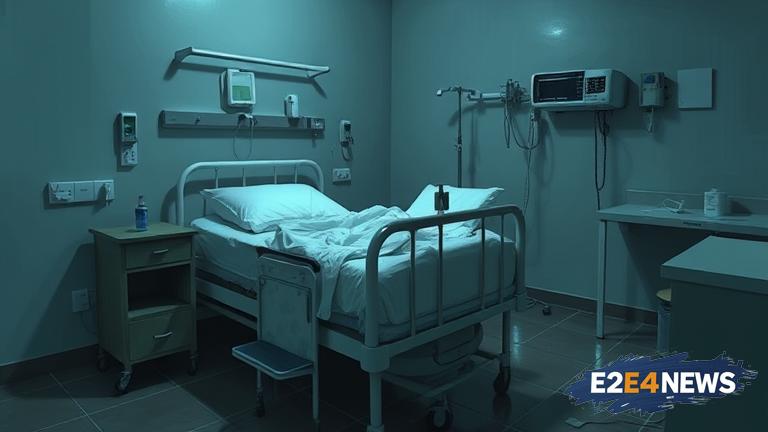A recent investigation has brought to attention the alarming issue of hospital bed shortages, which has resulted in the tragic death of a young boy named Yusuf Nazir. The report reveals that Yusuf was sent home from the hospital due to a lack of available beds, despite showing severe symptoms that required immediate medical attention. This heartbreaking incident has sparked widespread concern and outrage, with many calling for urgent reforms to address the systemic issues plaguing the healthcare system. The report highlights the dire consequences of inadequate funding and resource allocation, which have led to a shortage of hospital beds and staff. As a result, patients like Yusuf are being turned away, leaving them vulnerable to life-threatening conditions. The investigation has also uncovered a pattern of neglect and mismanagement within the hospital, which has contributed to the tragic outcome. The boy’s family has expressed their devastation and anger, demanding answers and accountability from the hospital and healthcare authorities. The incident has sparked a national debate about the state of the healthcare system, with many experts and advocates calling for increased funding and reforms to address the systemic issues. The report has also highlighted the need for greater transparency and accountability within hospitals, to prevent such tragedies from occurring in the future. Furthermore, the investigation has revealed that the hospital had been warned about the risks of bed shortages, but failed to take adequate measures to address the issue. The boy’s death has been met with an outpouring of condolences and support from the community, with many paying tribute to his memory and calling for justice. The hospital has since apologized for the incident, acknowledging that mistakes were made and promising to take steps to prevent similar tragedies from occurring. However, the boy’s family and advocates argue that more needs to be done to address the systemic issues and ensure that patients receive the care they need. The report has also raised questions about the impact of budget cuts and austerity measures on the healthcare system, which have led to a decline in resources and staff. The incident has sparked a renewed call for increased investment in healthcare, to ensure that hospitals have the resources they need to provide quality care. In addition, the report has highlighted the need for greater support and resources for families who have lost loved ones due to medical negligence or systemic failures. The boy’s death has also raised concerns about the mental health and well-being of hospital staff, who are often forced to work in high-pressure environments with inadequate resources. The investigation has also uncovered a culture of fear and intimidation within the hospital, which has prevented staff from speaking out about concerns and mistakes. The report has sparked a national conversation about the need for a more compassionate and patient-centered approach to healthcare, which prioritizes the needs and well-being of patients and staff. The incident has also highlighted the importance of community-led initiatives and advocacy groups, which are working to raise awareness and push for reforms to address the systemic issues plaguing the healthcare system. Ultimately, the report serves as a stark reminder of the need for urgent action to address the hospital bed shortage and systemic issues, to prevent similar tragedies from occurring in the future.
